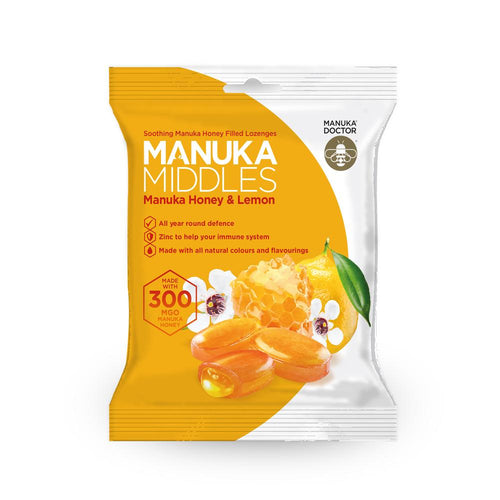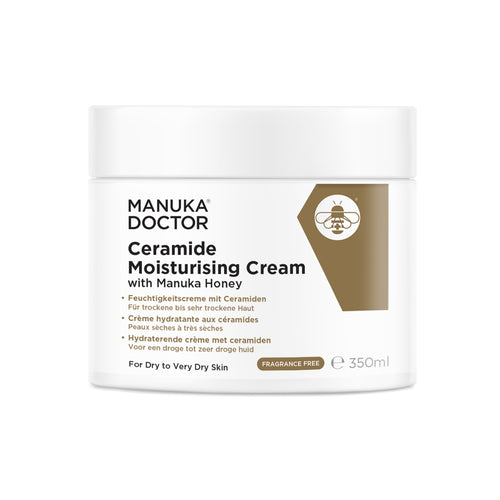Vitamin C is one of the most famous nutrients in nutritional world.
It’s what people turn to when they’re feeling poorly, and for good reason.
Now Manuka Doctor has launched a high strength Vitamin C tablet, as part of the Manuka Plus range of vitamin supplements.

Why is Vitamin C important?
Vitamin C, also known as ascorbic acid, has several important functions. According to the NHS website, this nutrient helps to protect cells and maintain healthy skin, blood vessels, bones and cartilage1.
Good sources include citrus fruit like oranges and orange juice, peppers, strawberries, blackcurrants, broccoli and perhaps surprisingly brussels sprouts!
NHS guidelines say that adults aged 19 to 64 need 40mg of vitamin C a day minimum, but taking a higher dose of upto 1,000 mg a day is common.
And because Vitamin C cannot be stored in the body, you need it in your diet every day.
Two of our high-strength Vitamin C capsules daily contains 1000mg of Vitamin C from 4 different sources, along with Zinc and Manuka Honey powder. Ingredients which have been approved by the European Food Standards agency to help support your immune system2.
As well as Vitamin C, our formulation also contains:
Manuka honey (MGO 300)
This high-strength honey – made by bees collecting nectar from New Zealand Manuka bushes – contains the active ingredient methylglyoxal (MGO), which has an antimicrobial3 and also anti-bacterial effect on the body, according to a 2018 study by Ulster University4.
Our Manuka honey is harvested from Manuka Doctor hives high in the New Zealand mountains, and then freeze-dried into powder for our capsules.
And Zinc
Just like vitamin C, this mineral is needed for normal immune system function2. A 2008 study by Wayne State University, USA reported that zinc is critical for the normal development and function of immune cells, including certain types of white blood cell called neutrophils and natural killer cells. An enzyme that helps gear up T-cells, another type of white blood cell, is also needed by zinc5.
Foods rich in this mineral include oysters, beef, seafood, pork, pulses, nuts and seeds, dairy food and wholegrains.
Sources
1. NHS guidance on Vitamin C - https://www.nhs.uk/conditions/vitamins-and-minerals/vitamin-c/
2. European Commission. EU Register on nutrition and health claims. http://ec.europa.eu/food/safety/labelling_nutrition/claims/register/public/?event=search
3. Alvarez-Suarez JM, et al. The Composition and Biological Activity of Honey: A Focus on Manuka Honey. Foods. 2014 Sep;3(3):420-432. https://www.ncbi.nlm.nih.gov/pmc/articles/PMC5302252/
4. Johnston M, et al. Antibacterial activity of Manuka honey and its components: An overview. AIMS Microbiology. 2018. 4(4):665-664. https://www.aimspress.com/fileOther/PDF/microbiology/microbiol-04-04-655.pdf
5. Prasad AS. Zinc in Human Health: Effect of Zinc on Immune Cells. Mol Med. 2008 May-Jun; 14(5-6):353-357. https://www.ncbi.nlm.nih.gov/pmc/articles/PMC2277319/


